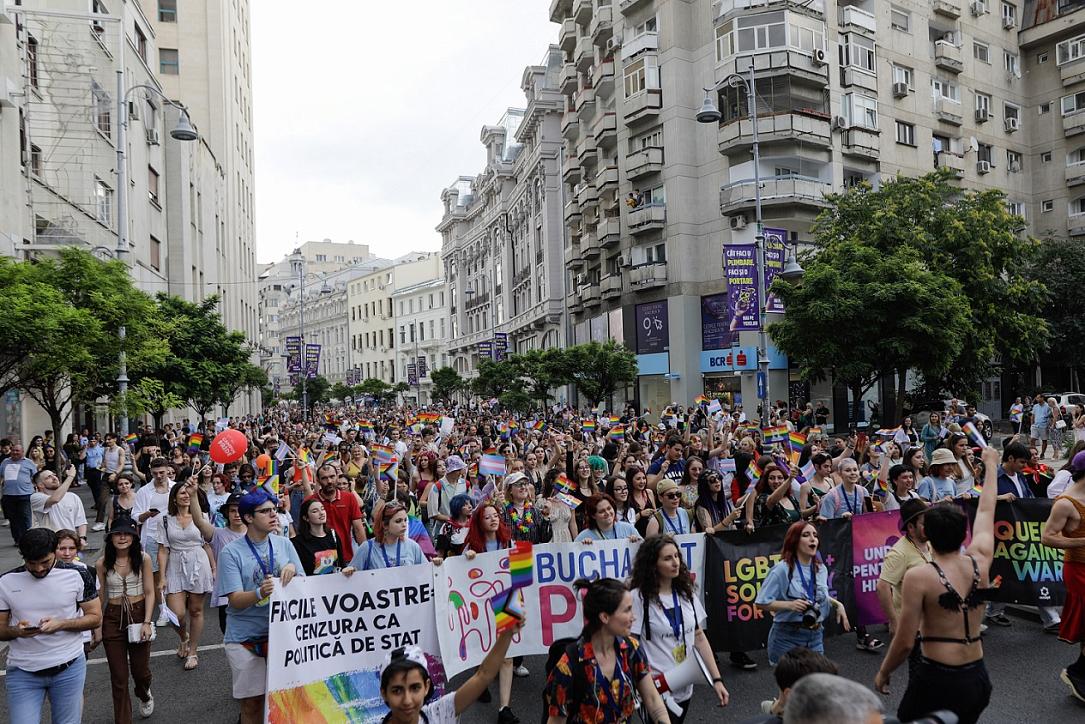Report: Surge in anti-LGBTI speech in EU, Romania



A report published by the LGBT advocacy group ILGA-Europe shows that hate speech against the lesbian, gay, bisexual, trans, and intersex (LGBTI) community from officials across Europe, Romania included, has been increasing in the last period.
The 13th Annual Review of the Human Rights Situation of LGBTI People in Europe and Central Asia alarmingly reports hate speech from politicians in 32 European countries over the course of last year, 19 of them member states of the EU.
“The vast majority of anti-trans statements instrumentalize children, using scare tactics to create opposition to trans minors’ access to healthcare and restrictions on education. This is a broader trend we see in the use of children, with politicians across Europe claiming that limiting access to information about LGBTI people prevents harm to minors,” the report states.
“This fear-mongering has also directly led to a further rise in attacks on LGBTI people. Of the 54 countries reporting in the Review, only six of them reported no hate crime in 2023. In the other 48 countries, much of the reported verbal and physical violence targeted trans people,” it adds.
In Romania, LGBTQ+ people continue to be affected by economic inequality and are at risk for poverty, according to the report. The new Fiscal Code makes it difficult for associations to distribute goods and services to them, as NEETs will have to pay mandatory health insurance for six months should they receive funding from any source.
“In July, MP George Simion shared a social media post to say that LGBTQI people are to blame for the weather conditions, which are divine punishment. [...] the head of the Romanian Orthodox Church said that ‘homosexuality was, is and will remain unnatural,’” the report highlights.
Nevertheless, an IPSOS PRIDE 2023 survey found that 51% of Romanians agree that same-sex families should enjoy a form of legal recognition and protection. In another survey, 70% of Romanians said they would accept their child if they came out as gay.
However, 43% of respondents stated that they did not know what the term “heterosexual” meant, and only 13% were familiar with the term “non-binary”. Another notable aspect was that 56% of respondents wanted pride parades to be forbidden.
The report also notes that Romania’s Ministry of Education has promoted laws that include the obligation to promote diversity, inclusion, and tolerance, and ban discrimination based on sexual orientation. While the laws caused a backlash from religious groups, “the majority parliamentary groups deleted the explicit mentions of sexual orientation as a ground, but instead included a reference to the non-discrimination legislation (Government Ordinance 137/2000), ensuring in this way that sexual orientation is covered.”
At the same time, in 34% of Romania’s faculties, homophobic discourse has been used, and 81% of trans respondents stated that their university and its staff do not respect their gender identity. “However, testimonials showed that there are an increasing number of allies among colleagues and professors, making Romanian students optimistic about the future,” the report says.
More than 25,000 people joined this year’s Bucharest Pride in July, marking the largest march to date. The Pride Festival featured 20 events and spanned over nine days.
(Photo source: Inquam Photos | George Calin)